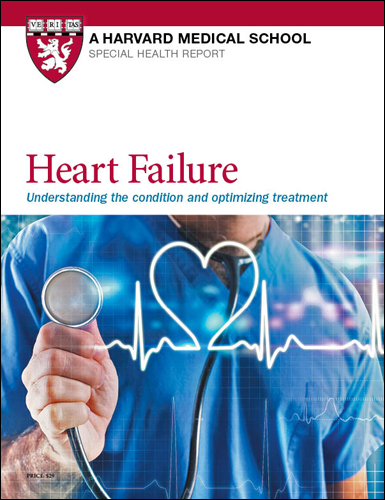Why eat three bananas a day? April 2012
Eating This One Food Every Day Could Prevent Heart Attacks and Strokes - bananas
Your body depends on the mineral potassium for many bodily functions, including keeping control of the electrical balance of your heart, metabolizing carbohydrates, and building muscle.
Low potassium levels can cause muscle weakness and heartbeat irregularities. On the other hand, too much potassium can cause your heart to stop.
If you have heart failure, you need to pay close attention to how much potassium you get each day. What's more, some heart failure drugs can cause your body to excrete too much potassium, while others can cause your body to retain too much potassium.
Your doctor can tell you how the medications you need will affect your potassium levels. You'll likely need to have your blood potassium level checked regularly to be sure it is within a good range for you.
If you need to raise your potassium level:
If your potassium level is too low, the solution may be as simple as taking potassium supplements.
If you need to lower your potassium level:
If your potassium level is too high, you may need to cut back on certain foods (see the table). These tips can also help:
- Soak or boil vegetables and fruits to leach out some of the potassium.
- Avoid foods that list potassium or K, KCl, or K+ — chemical symbols for potassium or related compounds — as ingredients on the label.
- Stay away from salt substitutes. Many are high in potassium. Read the ingredient lists carefully and check with your doctor before using one of these preparations.
- Avoid canned, salted, pickled, corned, spiced, or smoked meat and fish.
- Avoid imitation meat products containing soy or vegetable protein.
- Limit high-potassium fruits such as bananas, citrus fruits, and avocados.
- Avoid baked potatoes, baked acorn, and butternut squash.
- Don't use vegetables or meats prepared with sweet or salted sauces.
- Avoid all types of peas and beans, which are naturally high in potassium.
Potassium levels in common foods
| Fruits and vegetables | |
|---|---|
| High potassium | Artichokes, avocados, bananas, broccoli, coconut, dried fruits, leafy greens, kiwis, nectarines, oranges, papayas, potatoes, prunes, spinach, tomatoes, winter squash, yams |
| Medium potassium | Apples, apricots, asparagus, carrots, cherries, corn, eggplant, peaches, pears, peppers, pineapple juice, radishes |
| Low potassium | Blueberries, cauliflower, cucumbers, grapefruit, grapes, green beans, lettuce, strawberries |
| Meat and protein | |
|---|---|
| High potassium | Dried beans and peas, imitation bacon bits, nuts, soy products |
| Medium potassium | Beef, eggs, fish, peanut butter, poultry, pork, veal |
| Dairy | |
|---|---|
| High potassium | Milk, yogurt |
| Low potassium | Sour cream |
| Grains and processed foods | |
|---|---|
| High potassium | Plain bagel, plain pasta, oatmeal, white bread, white rice |
| Medium potassium | Bran muffins and cereals, corn tortillas, whole-wheat bread |
| No potassium | Fruit punches, jelly beans, nondairy topping, nondairy creamers |
| Share this story: |
Featured in this issue |
|

No comments:
Post a Comment